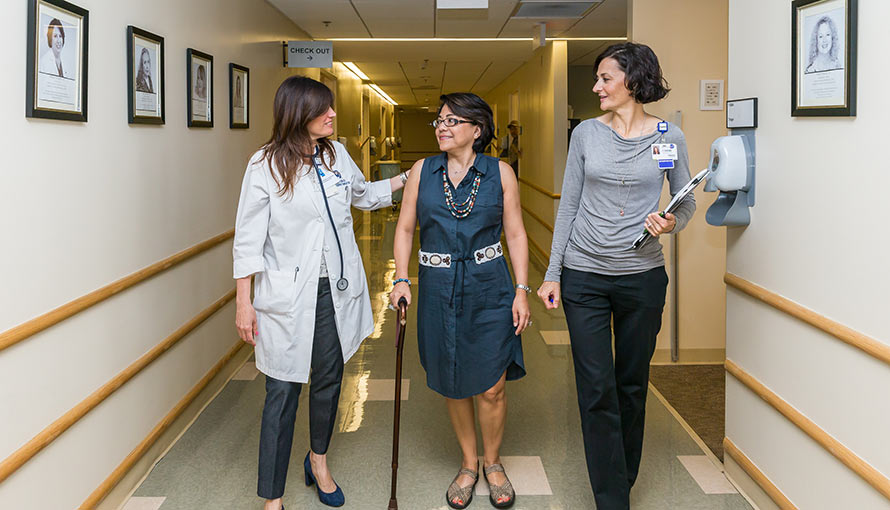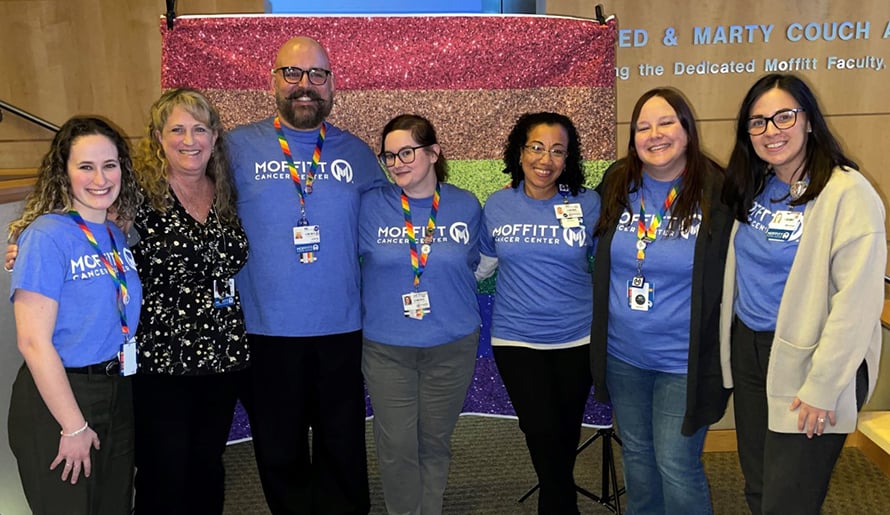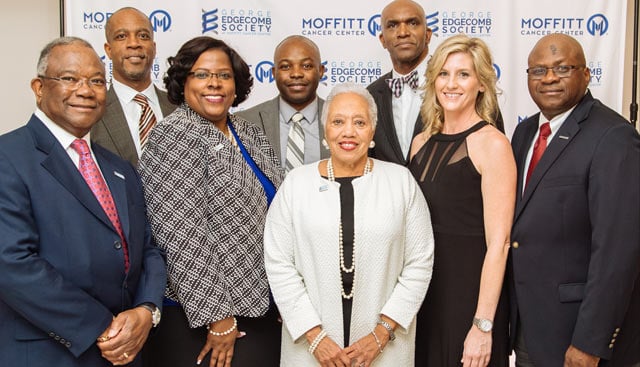Health Equity

Our Language Services interpreters provided services remotely (via phone or video) in support of outpatient virtual visits or on-site visits.
Health equity is when everyone has the equal opportunity to be as healthy as possible. Moffitt strives to place health equity at the forefront of all our initiatives, including expert cancer care, research, foundation and community outreach.
Find out more about our dedication to health equity:
 Commitment to the LGBTQ+ Community
Commitment to the LGBTQ+ Community
Moffitt’s commitment to diversity in patient access to care and research, in our workplace and in vendor relations includes supportive LGBTQ+ policies and team member training on issues unique to the LGBTQ+ community. This commitment to diversity is embedded in our culture and demonstrated in the daily work of cancer center team members. Read more about our commitment to the LGBTQ+ Community
Language Services
At the intersection of culture and communication exists the earnest work of our Language Services team. Regionally, Moffitt Cancer Center is the only health care institution within the Tampa Bay area with a centralized Language Services department. The department sets the national standards by engaging a team of professionally trained, certified translators and interpreters. The team protects our patients from falling into the abyss of misunderstanding that would normally be avoidable when the provider and patient speak the same language. During the beginning of the pandemic, Language Services became 100% virtual. Our interpreters provided services remotely (via phone or video) in support of outpatient virtual visits or on-site visits. Read more about Moffitt’s Language Services department
George Edgecomb Society

While there has been much progress in cancer treatment, screening, diagnosis and prevention over the past few decades, it has been slower for the Black/African American community. This community continues to be impacted by cancer health disparities and faces higher cancer rates and cancer deaths when compared to other populations.
In 2017, Moffitt Cancer Center created the George Edgecomb Society so that donors could help support research focused on cancer health disparities among Blacks/African Americans. Since then, this society has raised over $1.2 million in pledges and donations towards this cause. Read more about the George Edgecomb Society
Health Disparities Research
Health Disparities Research covers a wide range of focus areas, from the general to the specific. From identifying why underserved populations aren’t adopting known cancer-fighting strategies to focusing on biological factors that predispose Black men to higher prostate cancer incidence and mortality. Health Disparities Research at Moffitt also encompasses various support groups and getting to know the populations they study through community partnerships.
As recognition of cancer health disparities has grown, so have efforts to move beyond simply documenting the problem toward understanding all of its causes and developing and testing interventions to remedy it. Studies suggest that the differences observed in cancer incidence and mortality between various population groups are the result of a complex interplay of genetic, environmental, and social factors.
For more information on health disparities research, visit the National Institute on Minority Health and Health Disparities.
Health Equity
